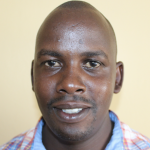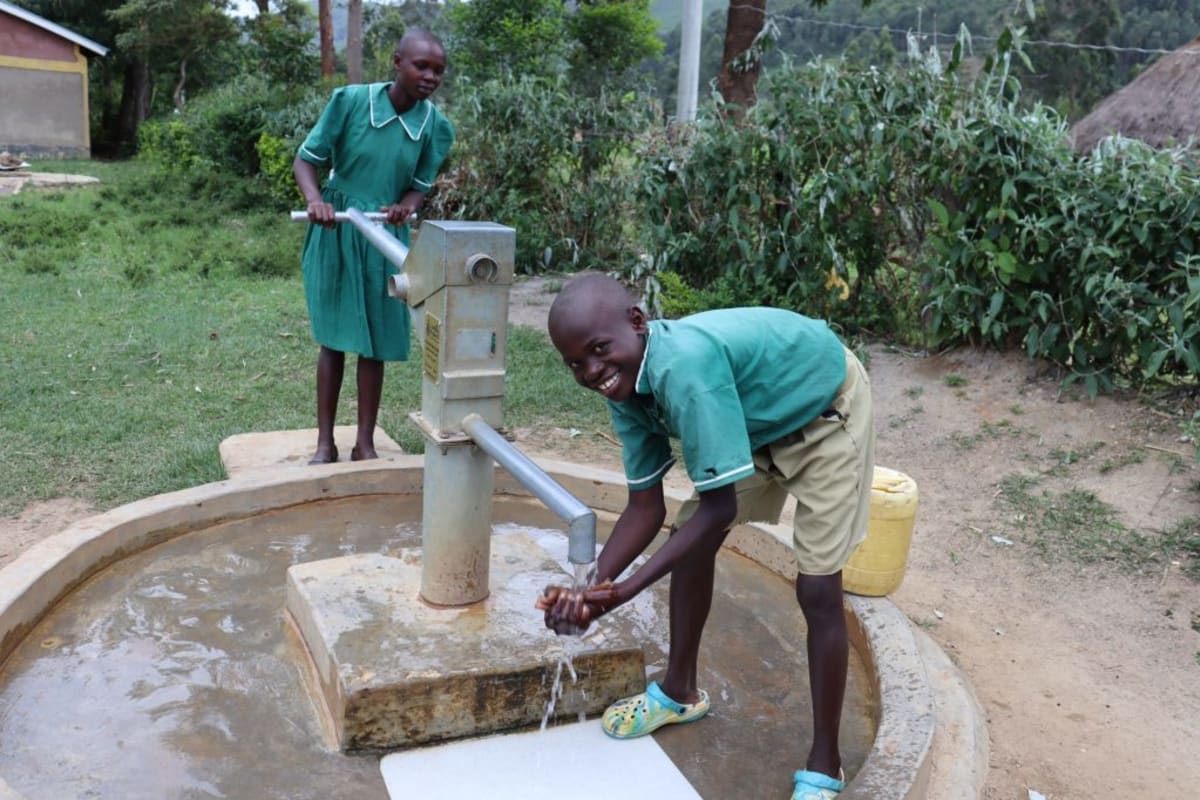Founded in 1972, St. Teresia Primary School was founded with hopes that students would not need to walk to faraway neighboring communities for schooling. Students in this community now have a nearby school, but still walk long distances. Now, they walk in search of water.
The school has a shallow well with a pump on its campus (shown below), but it failed long ago. Since the pump breakdown, no one has known how to repair it, and the financial challenges for reinstating it have left the water point unattended.
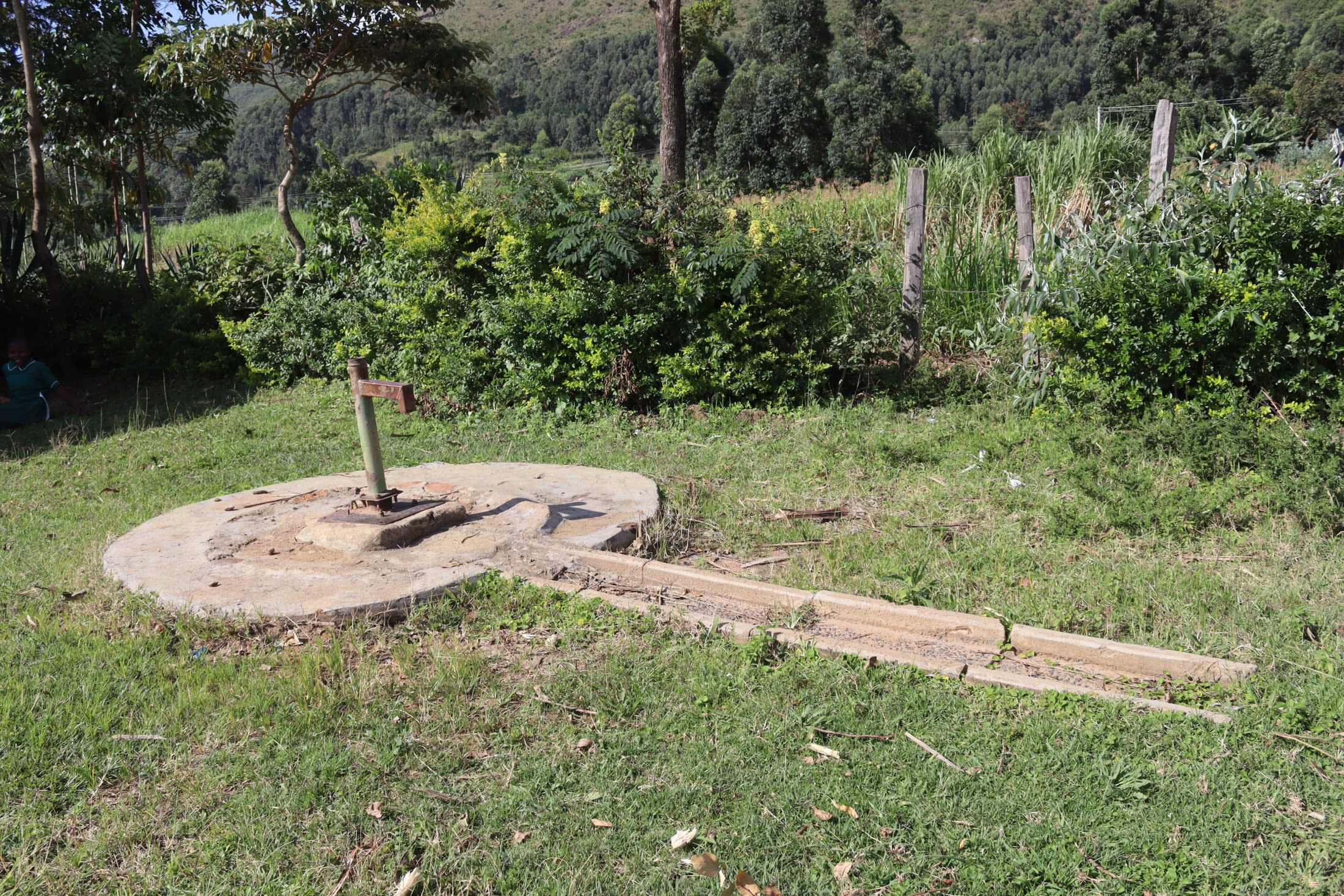
Of course, the school still needs water for drinking, sanitation, and hygiene, so students bring water from home each morning. They arrive early, by 6:30, pour their carried water into the kitchen containers, and some in the handwashing stations. Then they must go outside the school compound in search of more water.
Their first option is a community hand-dug well. Students wait in long lines to collect water, missing valuable class time. But if a community member is not at the well when they arrive, the water point is locked, and students must move on to the next option: an open source where community members often take their cattle to drink that is also quite far away.
According to the 42-year-old senior teacher, Jafred Mmasi (pictured below), water-related diseases are rampant in the school, especially during the rainy season. Drinking from so many unprotected, contaminated sources leaves students ill, needing medical treatment, and missing school.
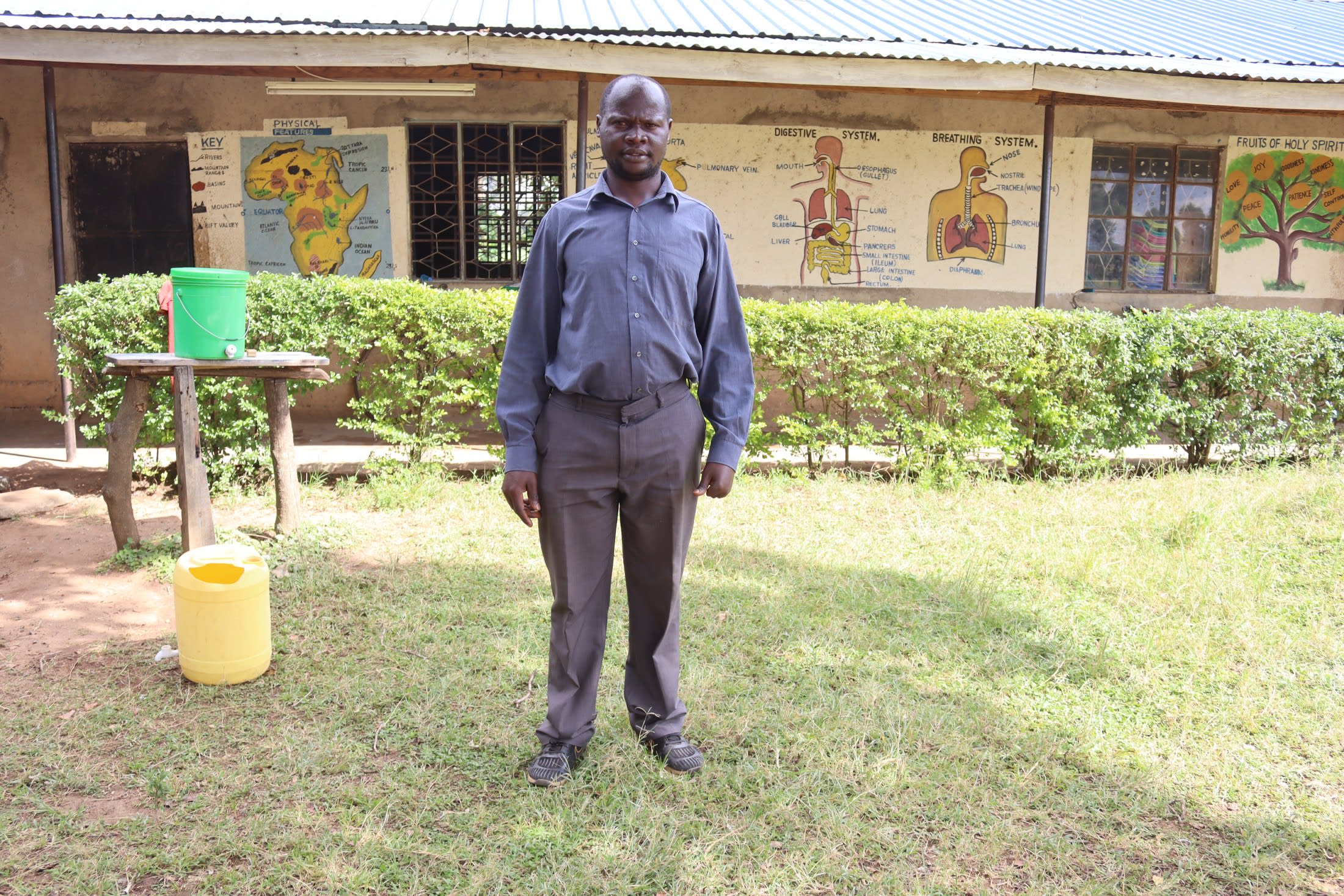
He also noted, "Extra time created for morning prep gets wasted looking for water and queuing for water at the shallow well. Besides that, fetching water is very involved as you must monitor students so as to do their things as expected."
The lack of water also means that it can only be used sparingly, which means that classrooms and latrines often go uncleaned, which is damaging to both health and morale.
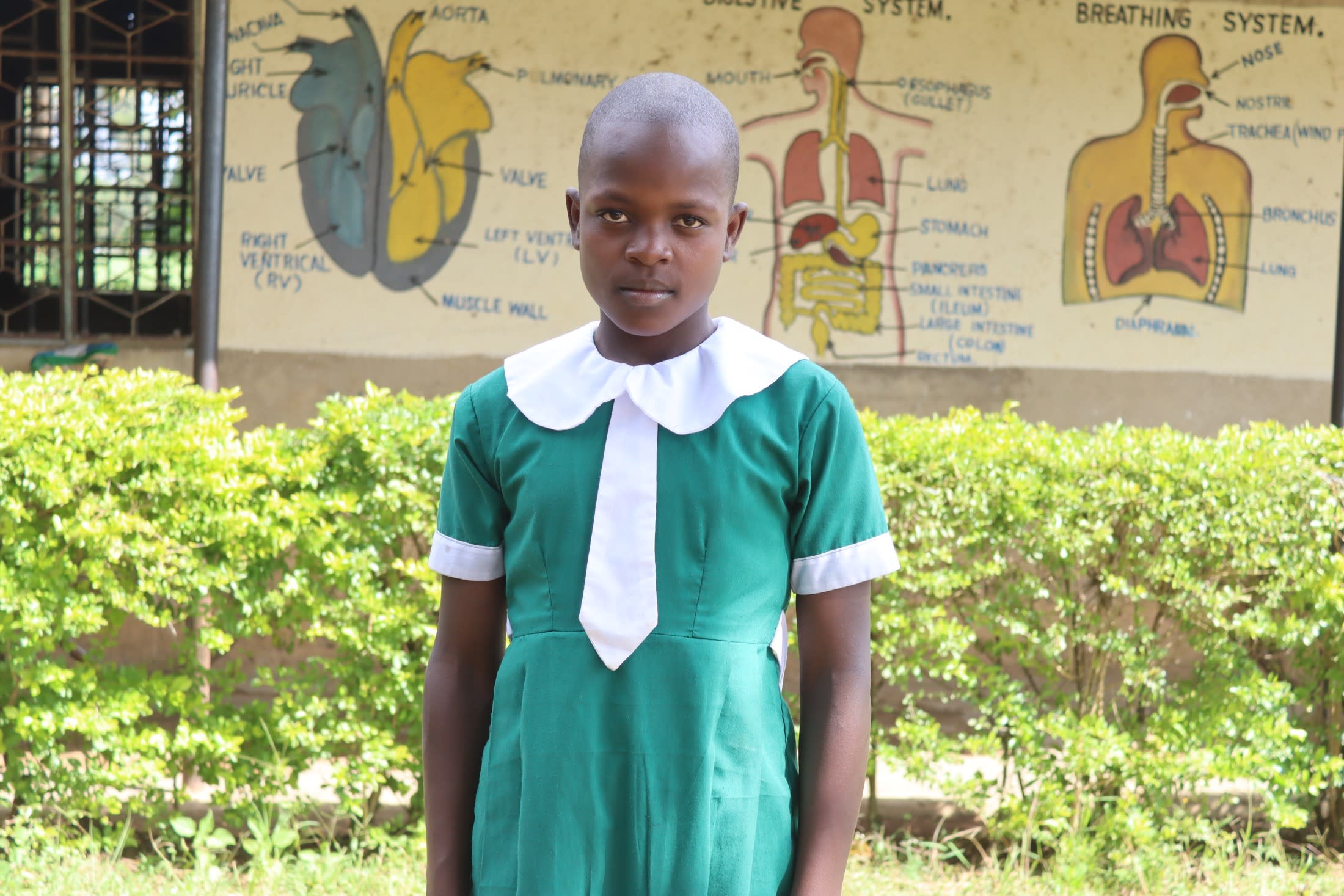
"The environment for learning sometimes is not favorable because cleanliness is not done on [a] regular basis," explained Sharlyne M. (in the photo above), 14. "Besides that, to access the pit latrines is another big challenge because they are full of bad smells that may choke one, as it [is] hard to breathe well while using those facilities. Also, we don't have sufficient water because we lack a water storage facility."
Currently, students waste time and energy, and their academic potential is limited, but the proposed well intervention will solve their water challenges. Students and staff will have a safe, reliable water source, and they can stop walking long distances and fighting illnesses to focus on learning instead. With easily accessible water to clean their grounds and some new latrines, these students will be well-equipped for bright futures.
What We Can Do:
New Well
We conducted a hydrogeological survey at this school and the results indicated the water table beneath it is an ideal candidate for a borehole well. Due to a borehole well's unique ability to tap into a safe, year-round water column, it will be poised to serve all of the water needs for this school's large population, even through the dry months.
The school will help collect the needed construction materials such as sand, rocks, and water for mixing cement. They will also provide housing and meals for the work team, in addition to providing local laborers. We will complement their materials by providing an expert team of artisans and drilling professionals, tools, hardware, and the hand-pump. Once finished, water from the well will then be used by the school's students and staff for drinking, handwashing, cooking, cleaning, and much more.
Handwashing Stations
There is currently nowhere for students to wash their hands after using the latrines or before eating lunch, let alone the water to do so.
The student health club will oversee the two new handwashing stations we will provide, and make sure they are kept clean and in working condition. The club leaders will fill the handwashing stations with water daily and make sure they are always supplied with a cleaning agent such as soap or ash.
VIP Latrines
We will construct two triple-door latrine blocks using local materials that the school will help gather. Three doors will serve the girls and three doors will serve the boys. All of these new latrines will have cement floors that are designed to be easy to use and to clean. And with a borehole right on school property, there should be enough water to keep them clean.
Training on Health, Hygiene, COVID-19, and More
We will hold a one-day intensive training session with students, teachers, and parents. This training will cover a wide range of topics including COVID-19 symptoms, transmission routes, and prevention; personal and environmental hygiene; and the operation and maintenance of the borehole, latrines, and handwashing stations. There will be a special emphasis on handwashing.
Our team of facilitators will use a variety of methods to train, including participatory hygiene and sanitation transformation, and asset-based community development. We will initiate a student health club, which will prepare students to lead other pupils into healthy habits at school and at home. We will also lead lectures, group discussions, and provide illustrative handouts to teach health topics and ways to promote good hygiene practices within the school including handwashing and water treatment. We will then conduct a series of follow-up trainings before transitioning to our regularly scheduled support visits throughout the year.
We and the school strongly believe that all of these components will work together to improve standards at this school, which will help lead to better student academic performance and will help unlock the opportunity for these students to live better, healthier lives.

 Borehole Well and Hand Pump
Borehole Well and Hand Pump
 Rehabilitation Project
Rehabilitation Project













